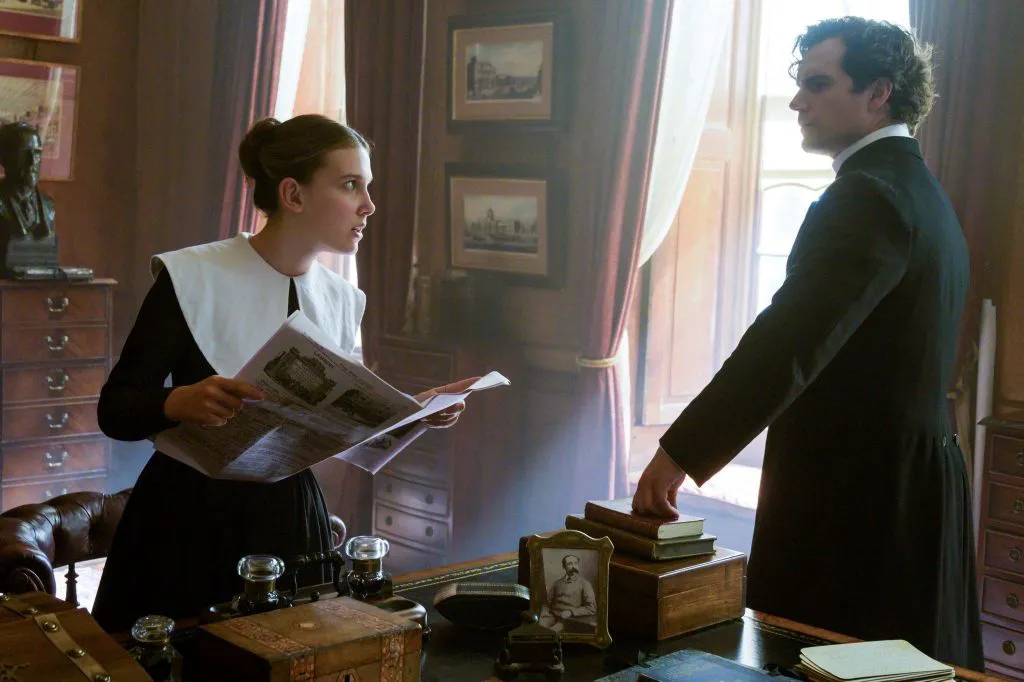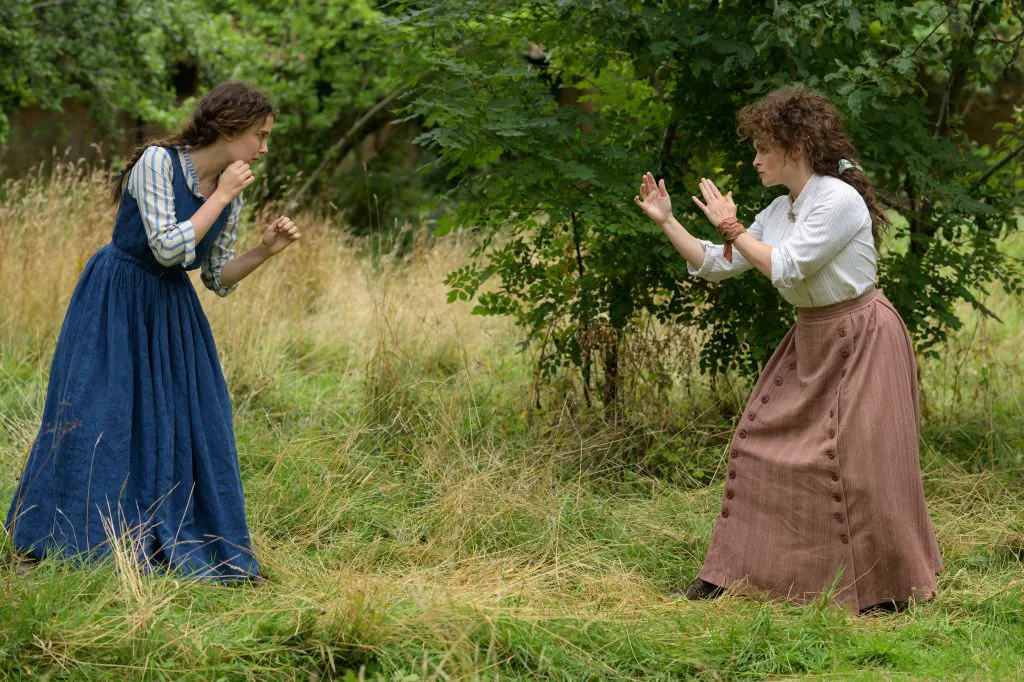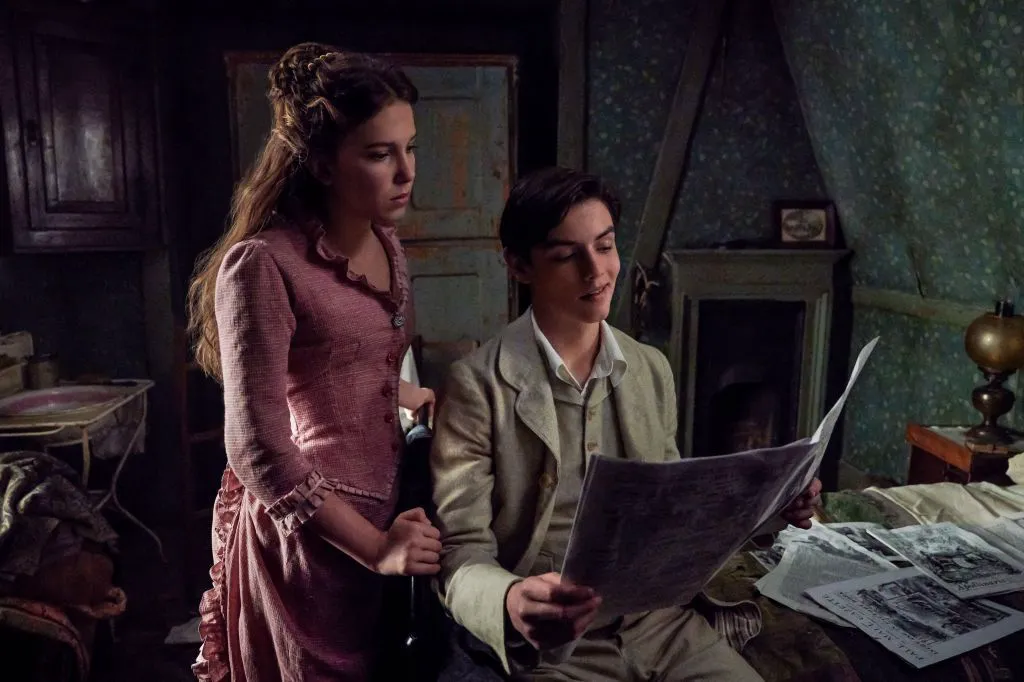Enola Holmes (Millie Bobby Brown), the younger sister of the world-renowned detective Sherlock Holmes (Henry Cavill), was raised in a countryside estate by her headstrong and progressive mother (Helena Bonham Carter). Instead of needlepoint and cooking, Enola was taught archery and jujutsu. One day, her mother vanishes without a trace, leaving behind only cryptic clues to her whereabouts. Her brothers return to the estate and decide to enroll Enola in a finishing school, but she escapes and sets off to find her mother. Along the way, she encounters a young Viscount (Louis Partridge) who is inexplicably targeted for assassination. This somehow ties into the House of Lords and a reform bill that would grant voting rights to those previously disenfranchised.

The Sherlock Legacy
The “Sherlock Holmes” trademark has long been a playground for interpreters. Doyle’s works are in the public domain, meaning they are not subject to copyright, yet they remain relevant after a century and a half. This has given rise to eccentric takes like “Holmes & Watson,” melancholic explorations like “Mr. Holmes,” the brisk series “Sherlock,” and the revisionist “Elementary.” Among these variations, “Enola Holmes,” based on the book series of the same name, is far from the most radical. After all, it’s not really about Sherlock, but about his little sister, whom Conan Doyle somehow forgot to mention.

Sherlock’s character isn’t particularly crucial to the plot. Enola Holmes could easily be Enola Smith, for example, without losing its essence—it’s still an adventurous teenage story set in the 19th century. There’s not much of a detective mystery here, and the protagonist doesn’t excel at deduction, preferring to solve problems through more emotional and groundbreaking means. This is partly the film’s intention: even Sherlock is portrayed as a more sensitive character, far from cold and cynical.
A Feminist Perspective
Holmes is primarily important as a reference point, a patriarchal symbol that allows Enola to recontextualize the detective myth from a feminist perspective. This perspective champions not only women over men (interestingly, this is the second Conan Doyle iteration where Sherlock suddenly has a smarter sister), but also feeling over reason. In the Enola books, Sherlock is depicted as a staunch chauvinist, but the film softens this portrayal. The filmmakers were afraid to cast the beloved character in a bad light, and as a result, only Mycroft, the pompous ultra-right aristocrat, is presented as a villain.

The idea of such an interpretation is neither good nor bad. After all, these kinds of stories are dictated by the spirit of our times. If “Enola Holmes” had been executed perfectly, no one would have noticed the influence of “leftist optics,” and the necessary meanings would have been absorbed seamlessly with the spirited adventure plot. However, as a light teenage film, it only partially works. Yes, it’s colorful and fun, and playwright Jack Thorne clearly knows how to write these marshmallowy costume adventures (he also made “The Aeronauts” and “His Dark Materials”). Director Harry Bradbeer dilutes the pathos with comical fourth-wall breaks (a technique he clearly picked up from the series “Fleabag,” where he worked, and which quickly becomes tiresome in “Enola Holmes”). Yet, the supremacy of meaning over action is too noticeable.
Meaning vs. Action
The two plot lines of “Enola Holmes”—the search for the teenage Viscount and the protagonist’s mother—don’t really connect. The first is clearly meant to be the “entertaining” part, while the second carries purely ideological significance. It turns out that Enola’s mother has joined radical suffragettes and is planning to blow something up to give women the right to vote. The film obviously doesn’t condemn this, and it seems that a children’s adventure film is justifying terrorism, as long as it’s for a good cause, of course.
Moreover, the Viscount’s storyline ends with a very millennial moral: it’s time for the old folks to retire and stop interfering with the young people’s decisions about the country’s fate. This is a fair point, but it doesn’t mean that a costume adventure should be turned into a metaphor for the fight against Brexit. But, as they say, everyone has their own agenda, and liberal-minded British creators are all preoccupied with the same thing right now.